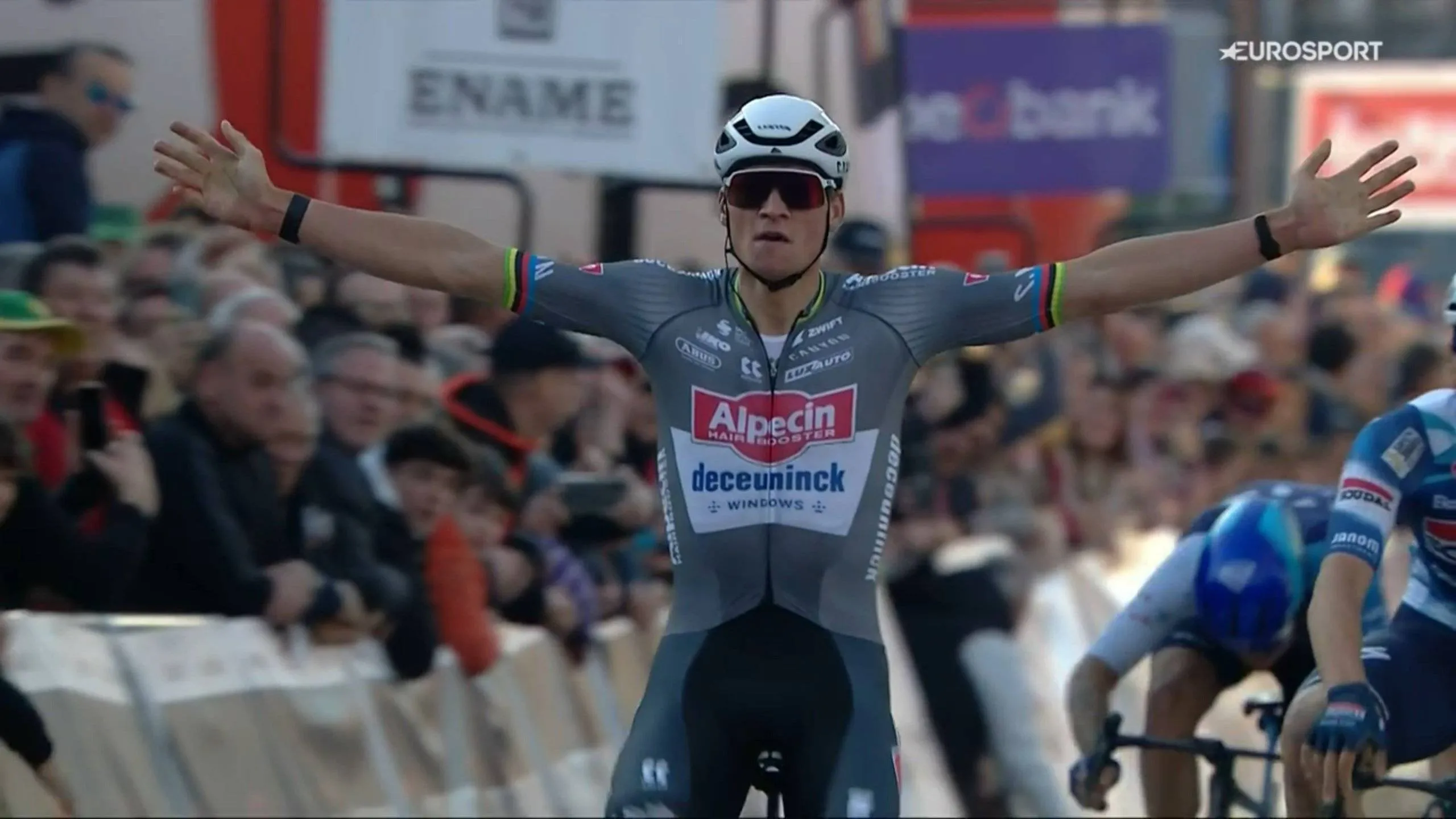"Within three years of retiring I was a drug addict" - Bradley Wiggins open and honest about lows that almost ended his life
CyclingSunday, 09 March 2025 at 10:42

Bradley Wiggins remains one of the most iconic figures in British
sport, yet his post-cycling career has been anything but smooth. From his historic
Tour de France victory in 2012 to his Olympic Games glory, Wiggins’ achievements
cemented him as a legend. However, behind the success, he has faced deep
personal struggles, from financial ruin to addiction and the lasting trauma of
abuse.
In a recent interview with The Telegraph, Wiggins opened up
about the bankruptcy and drug addiction battles that have shaped his life in
recent years. Despite his accomplishments, financial mismanagement left a
company under his control with debts totalling around £1 million.
Read also
His financial collapse had devastating consequences,
reportedly leaving him homeless, sleeping in various locations, including his former
wife’s home. At one point, he was even said to have considered selling his
Olympic medals, a dark contrast to the glory of standing on the podium.
Beyond the financial turmoil, Wiggins has also struggled
with his mental health, a battle that has followed him throughout his life. He
has previously spoken about his difficulties coping with fame, turning to drinking
in the early years of his career. However, the deepest scars trace back to his
childhood, where he suffered sexual abuse at the hands of a coach.
Read also
"The contradiction is that the coach who abused me was
my first male role model in cycling," Wiggins revealed. "I had grown
up with an absent father, and so this man instilled a confidence in me as a
bike rider. Wherever he went, he would tell everyone: 'This kid's going to be
special.' It kind of offset what was going on behind the scenes.
“There were other kids at the club it was happening to as
well. We were normalised to the behaviour, made to feel there was nothing wrong
with it. You're only 13, but it leads to a really dark period. Within three
years of retiring in 2016, I was a drug addict. And a lot of it was to do with
this recall of my childhood."
His honesty about addiction highlights a darker side of
elite sport, where athletes often struggle with their identities once they step
away from competition. The rigid discipline of professional cycling was gone,
leaving Wiggins vulnerable to the pain he had suppressed for decades.
Read also
Alongside his mental health challenges, Wiggins also
admitted he was exploited financially during his career. While he earned millions
as one of Britain’s most successful cyclists, he failed to keep track of his
finances and ultimately fell victim to those entrusted with managing them.
"I regret I never paid attention to my financial
affairs when I was racing. It’s one of the things that happens to athletes –
you make a lot of money and, if you haven’t got your eyes on it, people take
advantage. I was getting ripped off left, right and centre by the people
looking after me. Accountants as well."
His case is far from unique in the world of professional
sport. Many elite athletes, focused solely on their performance, place blind
trust in managers, agents, and accountants, only to discover later that they
have been misled. The reality of financial exploitation in sport is
well documented, and Wiggins’ experience is another stark warning of how even
the biggest stars can be left vulnerable.
Read also
Despite everything, Wiggins insists he has finally regained control
of his life. He describes how, after months of turmoil, he has been able to resolve
the issues that led to his bankruptcy.
"It's all resolved now. I'm on the front foot now. This
was something that was done to me. Eight months on, it has all turned around.
The people who are responsible are paying a heavy price for it. Fortunately,
it's all good. My life's in a good place."
claps 3visitors 3
Just in
Popular news
Latest comments
- You need to get out moreJezla18-02-2026
- Ego and self regard are at the center of most human folly.TheOlderIGetTheFasterIWas18-02-2026
- You can't win 'em all. These early season races at this level are good because it shows where you are weak and need work.awp18-02-2026
- This is what I wrote 12-02-2026 10:00: "As far as I'm convinced, Remco still has "zero" wins. I invite Remco to stop in Siena to meet his Slovenian master, Pogi the G.O.A.T... but no, it's better to run away and hide. His fans will somehow defend and glorify him. Let me repeat, he still has zero wins in 2026. If someone doesn't have a high enough IQ to understand what I'm talking about, it's because they don't recognize the low ranking F category races. If Remco will beat Del Toro and Adam Yates in the UAE Tour, then I will consider this to be his first win in 2026. Ad acta." PS: Remco still has zero wins. His second and third class races don't count. The first real race comes along and Mustafa Remco fails.Mou-Cro-HR18-02-2026
- This is what I wrote 12-02-2026 10:00: "As far as I'm convinced, Remco still has "zero" wins. I invite Remco to stop in Siena to meet his Slovenian master, Pogi the G.O.A.T... but no, it's better to run away and hide. His fans will somehow defend and glorify him. Let me repeat, he still has zero wins in 2026. If someone doesn't have a high enough IQ to understand what I'm talking about, it's because they don't recognize the low ranking F category races. If Remco will beat Del Toro and Adam Yates in the UAE Tour, then I will consider this to be his first win in 2026. Ad acta." PS: Remco still has zero wins. His second and third class races don't count. The first real race comes along and Mustafa fails.Mou-Cro-HR18-02-2026
- OK, let's stop with the BS. Remco Mustafa didn't have any cramps, 100%. The only truth is, Remco is not the great cyclist that the Belgians and his fans want us to think. Ad acta!!!... Once in the fall of 2025 I said that Remco's chances of following Pogi are equal to my chances, there is no difference. The only difference is that I'm in front of a TV and Mustafa is acting and making excuses live in front of an audience of millions. Ayuso and Remco are the biggest liars in the peleton.Mou-Cro-HR18-02-2026
- I just hope that he just says that he got cramps and that's it, rather than some long-winded excuse which makes him seem even more of a piece of...
 Rafionain-Glas18-02-2026
Rafionain-Glas18-02-2026 - finally, a team that does something smart. I could never understand why Ineos would like Egan train as he did alone. put a motorbike behind him with an earpiece to call out issues above. same with remco crashing into a postal truck.mij18-02-2026
- Wow, that is not a good sign for Remco. Great win for Tiberi!Pedalmasher18-02-2026
- Great champion Remco but his profile is more suitable for Ardennes-like races and tour with no very hard climbs. Not only Tadej and Vingegaard, there are a lot of younger cyclists (del Toro, Ayuso, maybe Seixas, Nordhagen and others) that will soon be big GC boys.
 maria2024202418-02-2026
maria2024202418-02-2026
Loading
1 Comments








